It's crucial to know that students with autism and ADHD need special study strategies. Autism…
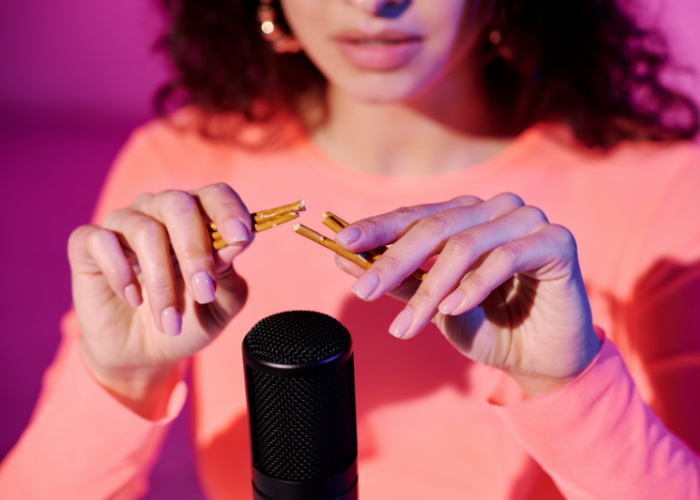
Do Autistic People Like ASMR? A Closer Look at ASMR and Autism
Have you ever experienced a calming, tingling sensation while watching a video or listening to certain sounds?
This phenomenon, known as autonomous sensory meridian response (ASMR), has been gaining popularity in recent years.
But did you know that there’s a unique connection between ASMR and autism?
In this blog post, we’ll explore this calming connection and how ASMR can be tailored to suit the sensory needs of autistic individuals.
Understanding the ASMR Phenomenon and Its Appeal
ASMR is a sensory phenomenon that induces relaxation and tingling sensations in response to specific auditory and visual stimuli, such as:
- soft whispers
- tapping
- gentle hand movements
- brushing sounds
- crinkling sounds
- water sounds Some people might experience a tingling sensation as a result of these triggers.
ASMR videos, including a popular asmr video on YouTube, have gained popularity due to their soothing and comforting qualities, which is why people watch ASMR videos, especially YouTube videos.
These videos often feature various ASMR triggers that can help promote relaxation, reduce stress, and even improve mental and physical health.
The Science Behind the Tingles
Although the exact science behind ASMR is still being explored, research suggests that it may be linked to increased connectivity in the auditory and sensory regions of the brain.
When you experience ASMR, your brain releases feel-good hormones like dopamine and oxytocin, contributing to the pleasurable sensation.
ASMR also affects brain waves by amplifying low-frequency waves and reducing high-frequency oscillations, activating brain areas related to sensation, emotion, motor skills, and attention.
Why People Are Drawn to ASMR Videos
People are drawn to ASMR videos for their calming effects and potential health benefits.
The release of oxytocin during ASMR helps to relax and create a bond between the viewer and the content.
The videos often elicit a tingly sensation and a sense of calm, which can help reduce stress, anxiety, and even promote better sleep.
Regular ASMR viewers report experiencing relaxation, improved sleep quality, decreased depression and anxiety, lower stress levels, and an overall sense of well-being.
Sensory Sensitivity and Autism
Sensory sensitivity in autism refers to the heightened or reduced sensitivity to sensory stimuli experienced by people with autism.
This can result in challenges processing everyday sensory information, causing physical discomfort, anxiety, and difficulties in daily activities.
Maintaining a balance between stimulation and relaxation is key for autistic individuals, given the significant impact of their unique sensory sensitivities on their well-being.
The Role of Sensory Processing Disorder (SPD)
Sensory Processing Disorder (SPD) is a condition that affects how the brain processes sensory information and is quite common among individuals with autism spectrum disorder, with prevalence ranging from 42% to 95%. SPD can be triggered by hypersensitivity to:
- light
- sound
- touch
- taste
- smell
These sensory experiences can cause sensory overload, while positive sensory triggers can help balance and improve daily life.
Managing SPD typically involves:
- Occupational therapy
- Sensory integration therapy
- A sensory diet
- Sensory-based therapies designed to help individuals with sensory processing difficulties cope with their sensitivities.
Navigating Sensory Stimulation with ASD
Autistic individuals must navigate sensory stimulation carefully to maintain a sense of well-being.
They may be over- or under-sensitive to any of their senses, making it challenging to process everyday sensory information. Strategies to help manage sensory sensitivity in autism include:
- Providing regular movement breaks
- Engaging in activities like jumping and swinging
- Creating a ‘sensorily safe’ environment
- Utilizing sensory integration therapy
Promoting well-being and reducing stress in autistic individuals hinges on understanding and accommodating their individual sensory sensitivities.
Autistic Individuals and Their Unique ASMR Experiences
Many autistic individuals have found ASMR videos to be helpful for calming down and reducing stress, although their experiences may differ from those of neurotypical individuals.
Individual preferences and avoidance of overwhelming stimuli are important factors to consider in understanding how the unique sensory sensitivities of autistic individuals can influence their response to ASMR triggers.
Personal Attention and ASMR
Personal attention in ASMR videos, such as simulating hair play, face touching, and direct eye contact, can provide a sense of connection and comfort for autistic viewers.
This type of content can help reduce anxiety and serve as a non-threatening stimulus to help manage sensory triggers.
Personal attention in ASMR videos may resonate particularly well with autistic individuals, providing a calm and dependable atmosphere with personalized attention, free from the distractions and unpredictability of real-life social interactions.
The Spectrum of ASMR Triggers Amongst Autistic Viewers
Autistic individuals may respond to various ASMR triggers, highlighting the importance of understanding individual preferences and sensitivities.
Some common ASMR triggers for autistic individuals include:
- Whispering
- Soft touch
- Tapping
- Personal attention
However, it is important to note that each individual may have different sensitivities and preferences when it comes to ASMR triggers. .
It is important to listen to and respect each person’s unique needs and preferences.
Considering individual preferences and sensitivities is important when introducing ASMR to autistic individuals, as their unique sensory experiences can influence their enjoyment and reaction to ASMR content.
The Potential Therapeutic Benefits of ASMR for Autism
ASMR has potential therapeutic benefits for autistic individuals, including promoting relaxation, reducing anxiety, and improving sleep quality.
By providing a calming sensory experience, ASMR videos can help autistic individuals manage stress and anxiety, as well as enhance their overall well-being.
Promoting Relaxation and Reducing Anxiety
ASMR can help autistic individuals manage stress and anxiety by providing a calming sensory experience that reduces overstimulation.
The gentle sounds and visuals in ASMR videos can be soothing and comforting for autistic individuals, especially those with heightened sensory sensitivities.
ASMR, through its promotion of relaxation and reduction of anxiety, can contribute positively to the mental health and well-being of autistic individuals.
Enhancing Sleep Quality and Managing Chronic Pain
ASMR may enhance sleep quality and help manage chronic pain for autistic individuals, although more research is needed to confirm these benefits.
Studies suggest that ASMR can trigger relaxation, promote mental well-being, and even alleviate symptoms of insomnia and depression.
ASMR videos, by providing a relaxing sensory experience and promoting calmness, hold the potential to enhance sleep quality and help manage chronic pain in autistic individuals.
Personality Traits and the ASMR Connection
ASMR sensitivity and autistic traits may share some commonalities, although the relationship between the two is complex.
Both ASMR participants and autistic individuals often exhibit heightened sensory sensitivity, and research suggests that autistic people may be more prone to intense reactions to ASMR triggers due to their increased sensitivity to sensory stimuli.
Common Traits Among ASMR Participants
ASMR participants often exhibit traits such as empathy, openness to experience, and a tendency to fantasize.
These traits may contribute to their sensitivity to ASMR triggers and their enjoyment of the soothing sensations and personal connection provided by ASMR videos.
Recognizing these common traits can aid in creating tailored ASMR content and offer insight into the relationship between ASMR sensitivity and autistic traits.
Comparing ASMR Sensitivity with Autistic Traits
Comparing ASMR sensitivity with autistic traits reveals some similarities, such as heightened sensory sensitivity, but further research is needed to understand the relationship between the two.
While some autistic individuals may find ASMR calming and enjoyable, others may find certain sounds or sensations overwhelming or unpleasant due to their unique sensory sensitivities.
By recognizing these similarities and differences, content creators and therapists can better understand and cater to the sensory needs of autistic individuals.
Final Thoughts
The calming connection between ASMR and autism offers promising potential for therapeutic benefits, tailored sensory experiences, and improved well-being for autistic individuals.
By understanding individual preferences, sensory sensitivities, and the unique experiences of autistic viewers, content creators and therapists can help autistic individuals navigate the soothing world of ASMR, providing relaxation, stress relief, and a comforting sensory spa.
Frequently Asked Questions
In this section we answer your questions about ASMR and Autism Spectrum Disorder.
What is ASMR?
ASMR is a sensory phenomenon that creates a calming, tingling sensation in response to specific visual and auditory triggers like whispering and tapping.
Is ASMR good for kids with autism?
ASMR can be beneficial for kids with autism as it can help to regulate emotions, reduce anxiety and stress, and calm after periods of overstimulation. Incorporating ASMR videos into intervention practices may help autistic individuals react in less stigmatizing ways.
Are neurodivergent people more likely to enjoy ASMR?
It’s possible that neurodivergent people could be more likely to experience intense reactions to ASMR due to greater sensory sensitivity.
How do you calm autism anxiety?
To calm autism anxiety, try understanding and identifying triggers, managing energy levels, adjusting the environment or planning ahead, self-soothing, relaxation and calming activities, visual schedules, and using an app.
What are coping techniques for autism?
Coping techniques for autism can include physical activities, writing, meditation, and listening to music. Relaxation techniques such as deep breathing, counting to 10, or exercise can also help in moments of stress. Autistic individuals may also find solace in engaging with a favorite activity or material, using calming apps, or making educated guesses at words and phrases using patterns.

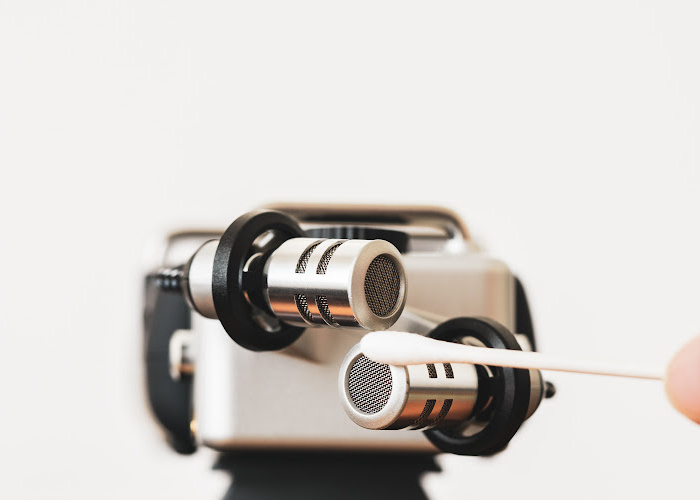
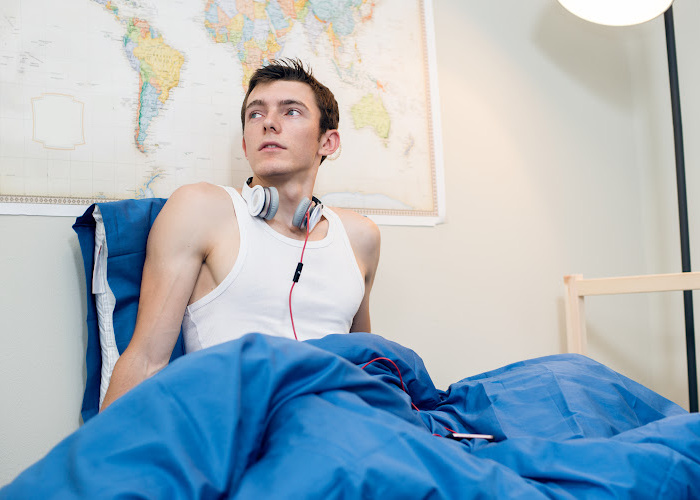

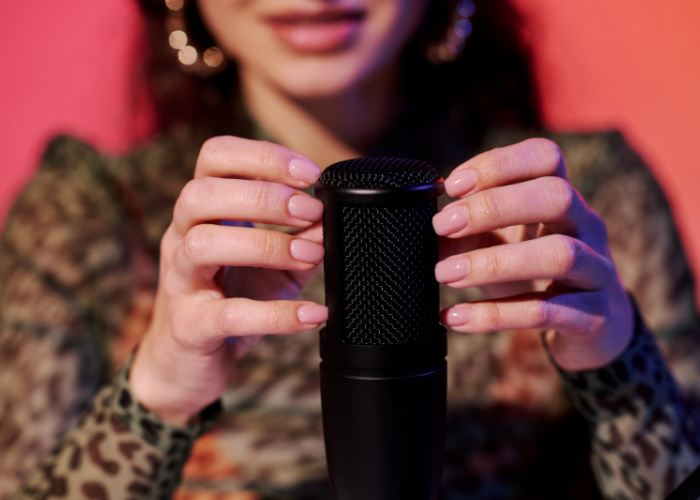

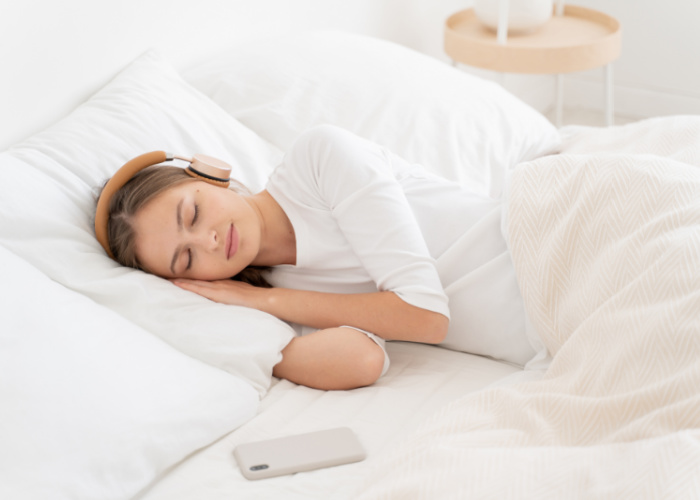



This Post Has 0 Comments